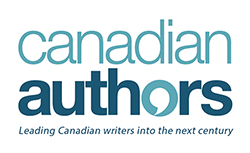Publishing
There is a plethora of information available out there, and more than one route to publication. You can research details online by Googling “getting published”, or look to one of many current “How to get published” books on the market.
If your manuscript is finished and polished to a high shine, there are several avenues for you to consider for publishing your work:
• Send a query to an agent asking him or her to represent you and sell your book to a publisher
• Send a query to the editor of a publishing house
• Build your credentials by getting published in literary magazines
If you are sending queries, always do your research and carefully follow the specific agent’s or publisher’s submission guidelines.
Traditional publishing means you will need to submit your work and have it selected for publication. There is no fee associated with this form of publishing.
Publishers may take unsolicited manuscripts from authors, but often find books via literary agents. Publishing houses pay for the editing, marketing and production of a book, and will sometimes give an advance to the author upon signing the book deal. Authors receive a royalty (7-12% of cover price for emerging authors), based on the book sales.
Because publishers are taking a financial risk before the book earns any sales, they only take on select books that they feel will be successful in the marketplace. Most publishing houses are inundated with unsolicited manuscripts on a regular basis, so becoming a successfully published writer takes a lot of determination, research, luck, and tenacity.
Self-publishing means you pay to have your work published and may manage some or all of other parts of the book publishing process such as editing, cover design, marketing and production. If you pay a fee to have your work published, your work is considered self-published.
Small independent publishing houses (referred to as indie presses) are independently owned publishing houses. You still need to send queries based on guidelines posted on their individual sites and have your manuscript accepted for publication.
Remember that if you pay a fee to have your work published, that is considered self-publishing. If the publisher covers all publishing costs, that is considered traditional publishing, regardless whether it is with a large house or an independent press.
This answer has been excerpted from “Self-Publishing & POD Services” an article by author Victoria Strauss, reprinted with her permission in the Winter 2014 issue of our Canadian Author ezine.
“Print on demand (POD) is the commonly used term for the digital printing technology that allows a complete book to be printed and bound in a matter of minutes. Digital printing makes it easy and cost-effective to produce books one or two at a time or in small lots, rather than in larger print runs of several hundred or several thousand…
“A few POD services are free or very low-cost, but most will set you back anywhere from a few hundred to several thousand dollars. Typically, POD services’ contracts take only nonexclusive digital rights, and can be terminated at will. Low-cost POD services such as Lulu.com and CreateSpace let authors set book prices and control profits, but other services determine the prices and pay the author a specified percentage of the net (cover price less discounts)—recouping their manufacturing costs at the point of sale.
“Though POD services began to appear only a little over a decade ago, they’ve become what many people think of when they think of self-publishing. However, it’s worth remembering that there are important differences between using a POD service and self-publishing the traditional way.”
Victoria Strauss is a co-founder of Writer Beware.
In today’s market, authors have more options than ever in terms of deciding how to pursue their publishing goals. What do you want to get from the publishing experience and what does “being published” mean to you?
If you think self-publishing is the best choice for you, be prepared to act as your own agent, editor, book designer, publicist, distributor, and marketing expert – or to pay for each of these services in order to produce a professional book that finds success in sales.
Understand that any avenue to get your work published is an arduous path that requires research, tenacity, and patience. Professionals of any sort – from athletes and musicians, to those in science, medicine, or law – don’t achieve success easily. Nor do writers.
Dedication to your craft is only one part in the business of your written work. Be prepared to work for success regardless of which publishing route you decide to take.
Tips
• Send your manuscript to the right publisher – ones that publish in your genre. Do your research.
• Determine who publishes material that is similar to yours by visiting bookstores, and researching similar work in your genre. If you can’t find anything like yours to compare it to, you haven’t looked hard enough. Know your own work.

